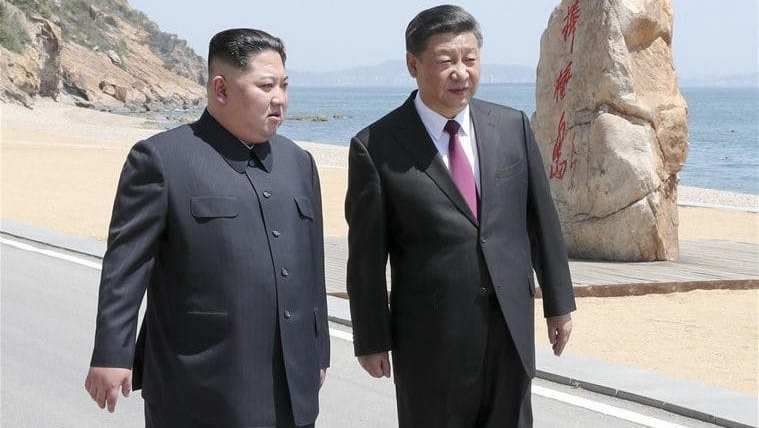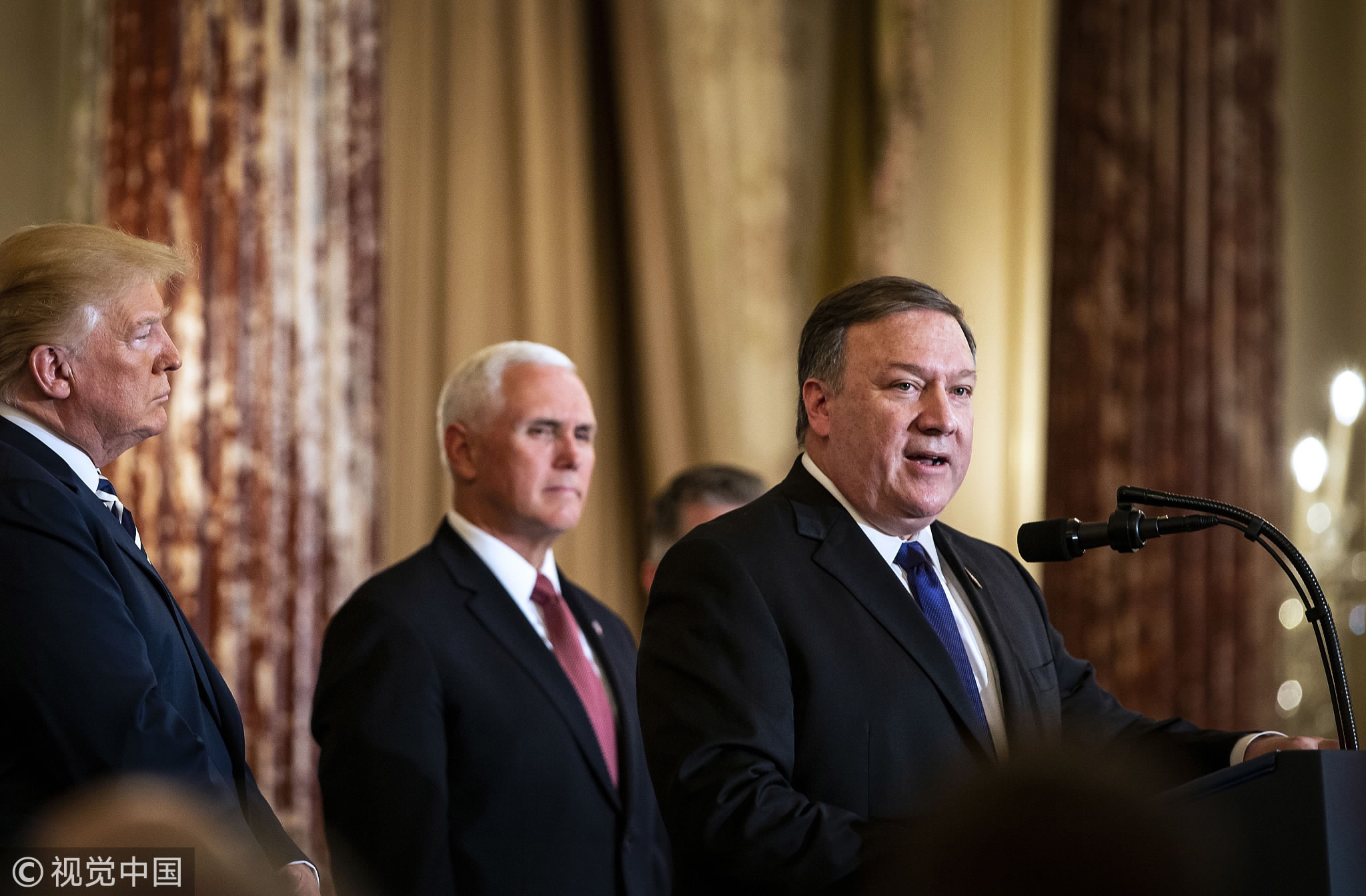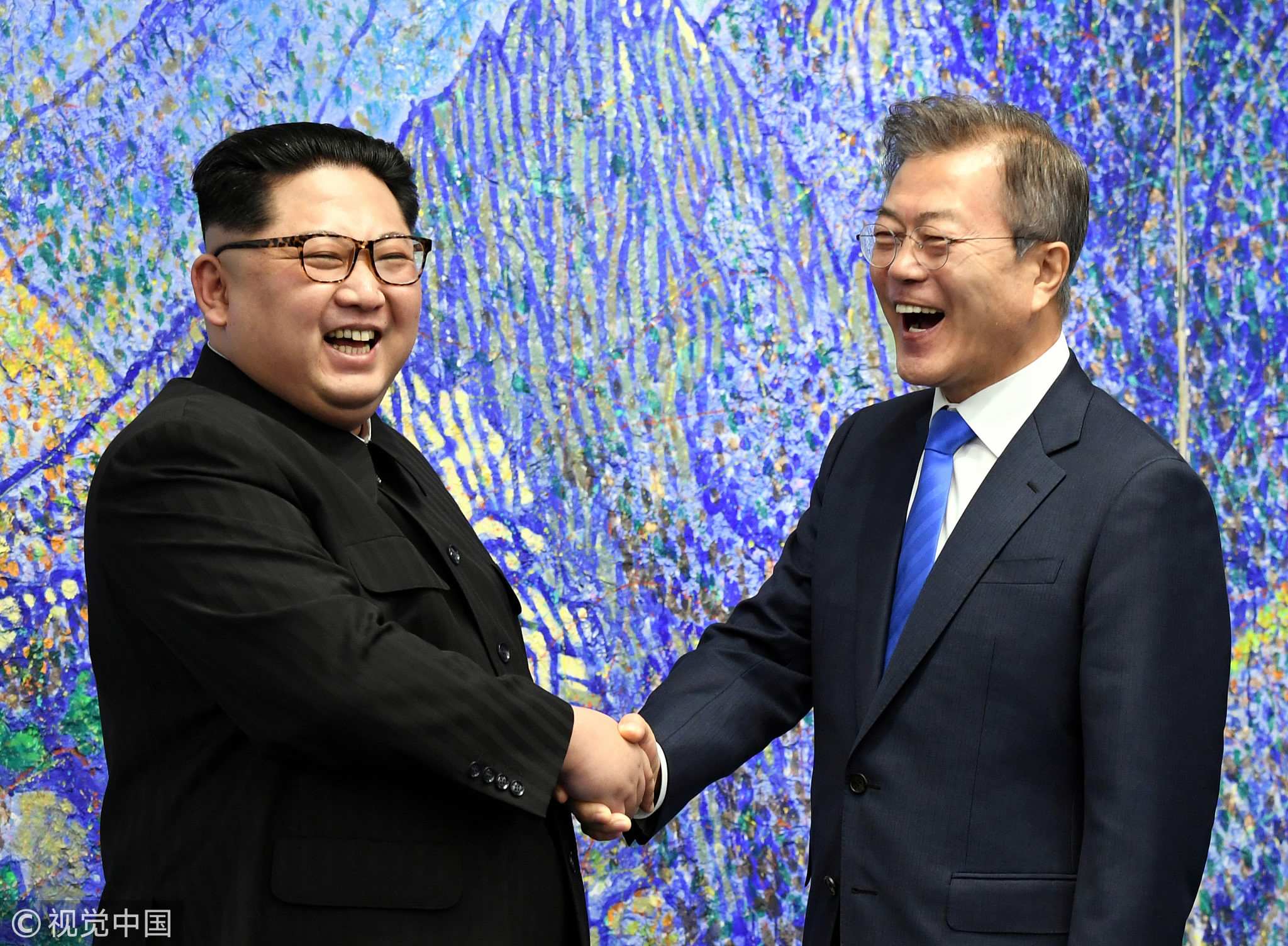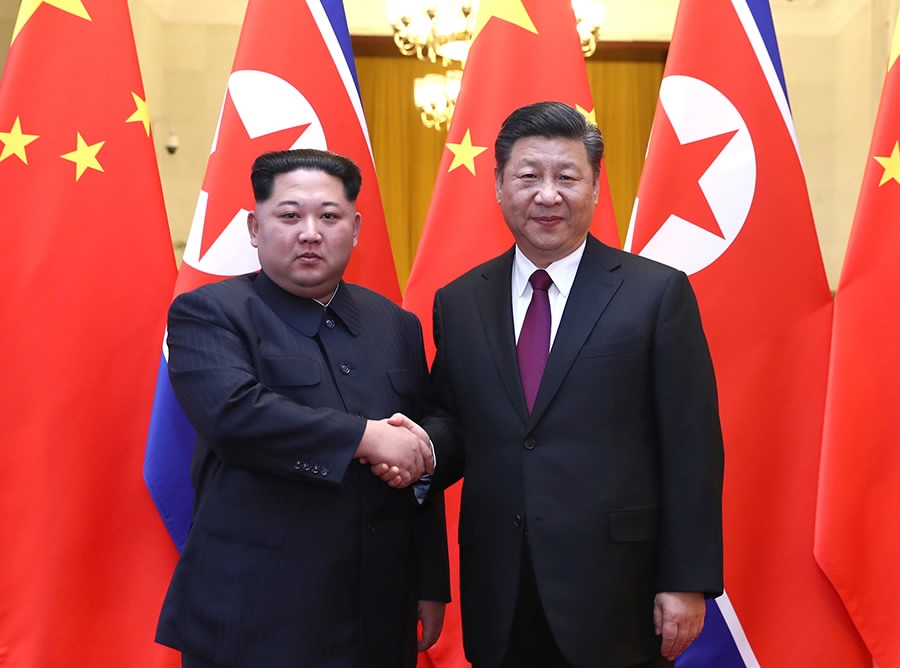
Opinions
22:51, 08-May-2018
Opinion: China is integral to shrinking US-DPRK trust deficit
By Wang Xiaonan

Chinese President Xi Jinping and Democratic People's Republic of Korea (DPRK) leader Kim Jong Un wrapped up their second meeting in northeast China's port city of Dalian on Tuesday.
The unannounced visit came barely 40 days after their first meeting in Beijing and less than a week after Chinese Foreign Minister Wang Yi's Pyongyang trip.
Such frequent interactions between China and the DPRK indicate Beijing's significance in mediating peninsular peace during this critical period.
Kim's two-day travel comes when the fate of the Korean Peninsula has once again been shrouded in gloomy uncertainty as Pyongyang warned Washington against miscalculating its "peace-loving intention" as a sign of "weakness."
A foreign ministry spokesman for the DPRK on Sunday told the Korean Central News Agency that the Donald Trump administration was misleading the public by claiming that its "maximum pressure" campaign, notably military threats and economic sanctions, was behind Pyongyang’s peace overtures.
The remarks came soon after brinkmanship seemed to be veering off the Korean Peninsula given a whirlwind of thawing diplomatic activities over the past five months.
The fast-changing dynamics on the Peninsula, which had been subjected to a decades-long stalemate, amazed the world. However, the latest rhetoric from Pyongyang has cast a shadow on the much-anticipated summit between Trump and Kim.
The move is actually a full-fledged demonstration of the trust deficit between Washington and Pyongyang.
Days ago, Trump's new top diplomat Mike Pompeo deliberately changed the terminology of "complete, verifiable, irreversible dismantling" (CVID) of the DPRK's nuclear weapons to the expression of "permanent, verifiable, irreversible dismantling" (PVID).
Meanwhile, Trump made a subtle alteration from "denuclearization on the Korean Peninsula" to "denuclearization of the DPRK." Such changes might have drawn the furious response from Pyongyang.

Mike Pompeo (R), US Secretary of State, speaks after being sworn in as Mike Pence (C) and President Donald Trump listen during a ceremony at the State Department in Washington, DC, May 2, 2018. /VCG Photo
Mike Pompeo (R), US Secretary of State, speaks after being sworn in as Mike Pence (C) and President Donald Trump listen during a ceremony at the State Department in Washington, DC, May 2, 2018. /VCG Photo
Given the new, though slight, developments, Pyongyang is anxious to take initiative and sit for talks on an equal footing with Washington for fear that the superpower and its allies are just flirting with it.
Moreover, the Washington-Seoul "Max Thunder" military drill involving eight mighty US F-22 stealth fighters will kick off on Friday.
The international community has raised concerns over whether the barbs traded between the US and the DPRK will ruin all the positives garnered on the Peninsula and hence plunge the situation "back to square one," as the DPRK spokesman said.
After all, the first inter-Korean summit has yielded a raft of landmark outcomes: The Republic of Korea (ROK) has started to dismantle loudspeakers along the border used to blast propaganda and music; the DPRK moved its clocks 30 minutes forward to match ROK’s time zone from Saturday on; the two Koreas agreed to set up liaison offices in each other’s capital city; and they could probably team up to participate in the Jakarta-Palembang Asian Games slated for August.
These inspiring trends have never taken place since the Korean War broke out in 1950.

DPRK leader Kim Jong Un shakes hands with South Korean President Moon Jae-in during the inter-Korean summit at the Peace House in the village of Panmunjom in the Demilitarized Zone in South Korea, April 27, 2018. /VCG Photo
DPRK leader Kim Jong Un shakes hands with South Korean President Moon Jae-in during the inter-Korean summit at the Peace House in the village of Panmunjom in the Demilitarized Zone in South Korea, April 27, 2018. /VCG Photo
Nonetheless, it seems that a lack of trust has all along been the bottleneck obstructing the peace process on the Korean Peninsula.
For decades, the security threat in the region derives from the military pressure from the US-ROK alliance as well as DPRK's nuclear weapons development.
The greater the pressure, the more frequently Pyongyang took to nuclear and missile tests, which consequently elicited more poignant punishments from the US alliance. With tensions ever escalating, the Peninsular security scenario has fallen into a vicious cycle.
The key step in fostering trust between the stakeholders on the Korean Peninsula is the establishment of a joint security mechanism – actually the nature of a lasting peace regime, and it's nearly impossible to build the mechanism without Beijing, said Yang Xiyu, senior fellow with the China Institute of International Studies.
As early as 2014, Chinese President Xi Jinping said, "No country should seek absolute security of itself at the expense of others… We cannot just have security for one or a few countries while leaving the rest insecure."
The most pressing thing right now is to set up a security mechanism that fits every stakeholder's interests, bringing an end to the fragmented security landscape in the East Asian region.
The region's major power, China, is integral to this process.
"Beijing is expected to play a pillar role in revving up this process, by both promoting the quadrilateral talks among the two Koreas, China and the US, and reviving the long-stalled six-party talks also involving Russia and Japan," Yang, also a former diplomat engaged in Korean Peninsula issues, told CGTN.

Chinese President Xi Jinping meets with DPRK leader Kim Jong Un during the latter's visit to Beijing from March 25 to 28, 2018. /Xinhua Photo
Chinese President Xi Jinping meets with DPRK leader Kim Jong Un during the latter's visit to Beijing from March 25 to 28, 2018. /Xinhua Photo
The Trump administration should drop its preemptive mentality that Pyongyang has caved in to its extreme pressure.
It's also anticipated that the US president is sincere in addressing the DPRK conundrum, instead of eyeing some diplomatic gains for the mid-term election.
In the meantime, the DPRK should reassure the rest of the world that it will not repeat the history of going back on its word.
Only by building mutual trust can the stakeholders prevent the Korea Peninsula from falling into the past cycle of prolonged deadlock followed by glitters of hope and subsequent stagnation.
"It's definitely an arduous way for the peninsula to go from strategic suspension to strategic trust to strategic cooperation. China will, as always, contribute to the peace-building effort on the Korean Peninsula," said Da Zhigang, director of the Institute of Northeast Asia under Heilongjiang Provincial Academy of Social Sciences.
Peninsular peace cannot be realized overnight through Kim-Moon and Kim-Trump summits, Da added. Pyongyang's "phased denuclearization" proposal needs respect and support not only from Beijing but from all other parties involved.
Washington and Pyongyang should just stop exchanging assaults out of distrust and waiting to see what cards each other will play.
(The author is a reporter for CGTN Digital.)

SITEMAP
Copyright © 2018 CGTN. Beijing ICP prepared NO.16065310-3
Copyright © 2018 CGTN. Beijing ICP prepared NO.16065310-3